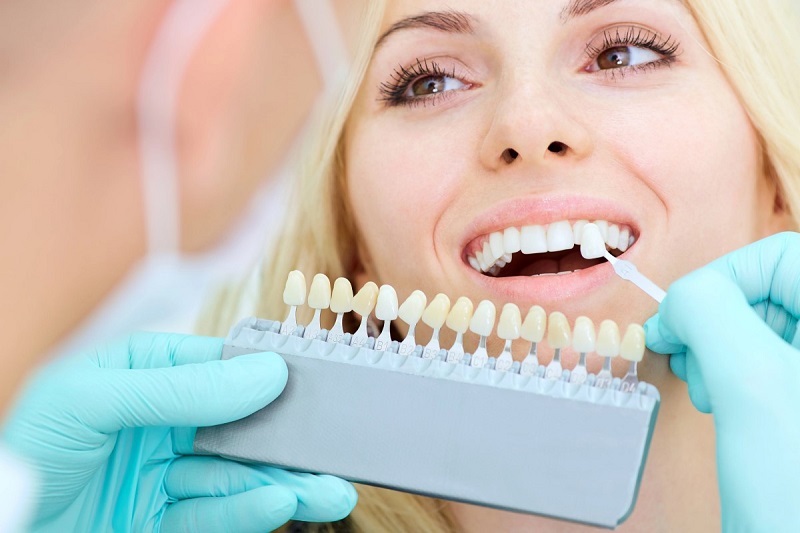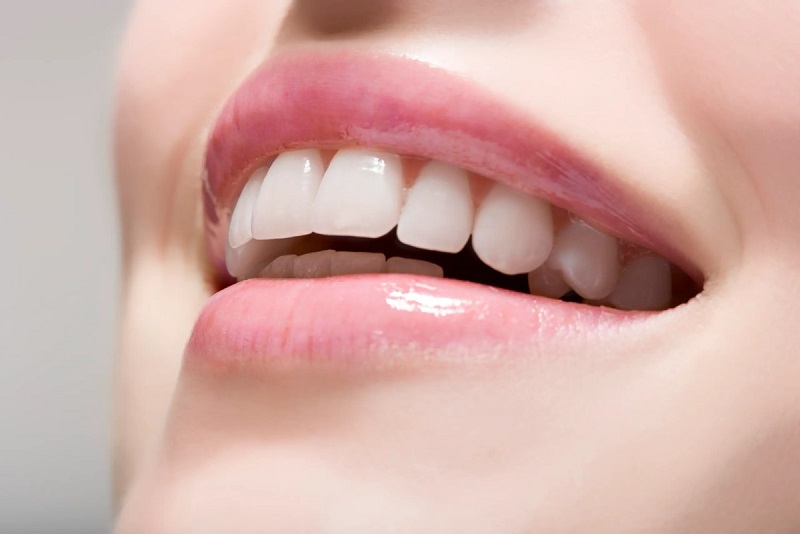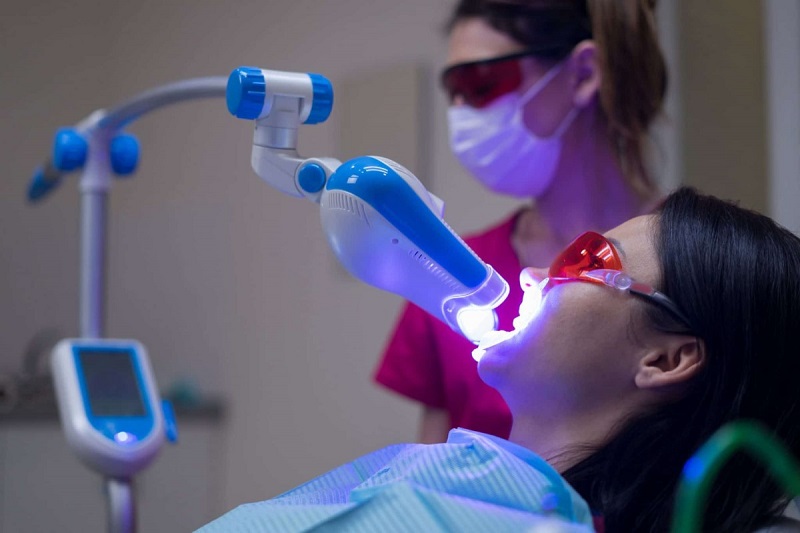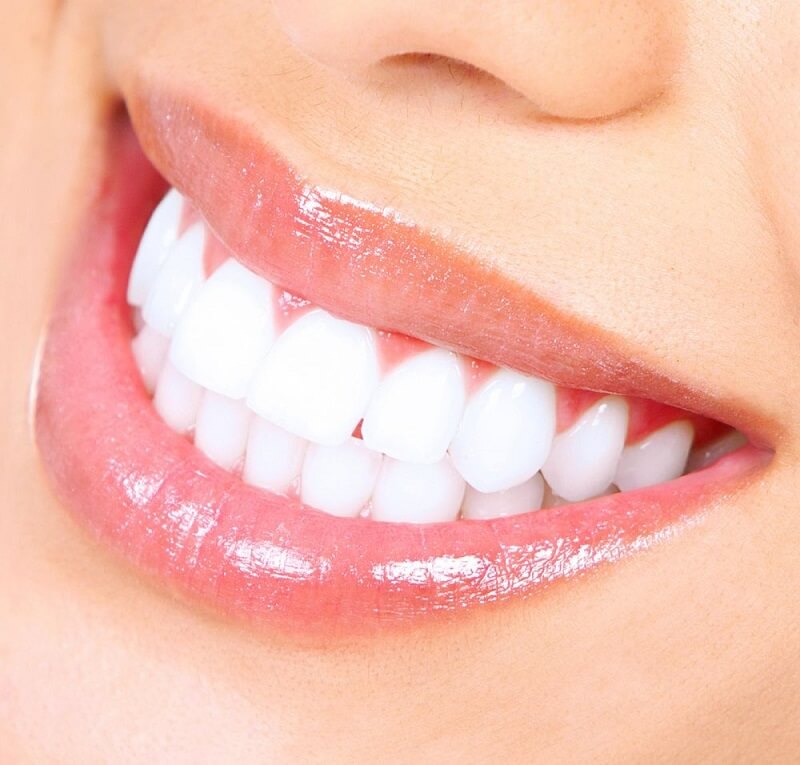“Does teeth whitening hurt? How to whiten teeth so as not to hurt?” These are common questions that many people have when considering teeth whitening procedures. Achieving a brighter smile is a desire for many, but concerns about potential discomfort or sensitivity can be a deterrent. So, if you’re looking to enhance your smile, keep reading to discover the secrets of achieving a radiant grin without the pain.
The importance of white teeth
Here are some reasons why white teeth are important:
- Enhanced Confidence: A bright, white smile can boost self-confidence and self-esteem. When you feel good about your teeth, you’re more likely to smile more often and project a positive self-image.
- Better First Impressions: White teeth are often associated with good oral hygiene and overall health. They can leave a positive first impression in social and professional situations, increasing your likability and approachability.
- Youthful Appearance: Whiter teeth can make you look younger. As we age, teeth tend to yellow or darken naturally. Whitening your teeth can reverse some of these effects and give you a more youthful appearance.
- Improved Oral Health: Achieving and maintaining white teeth often goes hand-in-hand with good oral health practices. Regular brushing, flossing, and dental check-ups are essential for maintaining a bright smile.
- Social Relationships: A beautiful smile can positively affect your social life. It can make you more approachable and help build better relationships with friends, family, and romantic partners.
- Overall Health Benefits: Some studies suggest that good oral health, including white teeth, may be linked to better overall health. Poor oral hygiene has been associated with various health problems, including heart disease and diabetes.

Is teeth whitening safe?
Teeth whitening can be safe when done under the guidance of a dental professional or by using over-the-counter products as directed. However, it’s essential to understand that teeth whitening may not be suitable for everyone, and there can be risks and side effects associated with the process.

Does teeth whitening hurt? Is there any sensitivity?
Teeth whitening can sometimes cause temporary sensitivity or discomfort, but it doesn’t necessarily hurt for everyone. The degree of sensitivity varies from person to person and can depend on the whitening method used and individual factors. Here’s what you should know:
- Tooth Sensitivity: Some people may experience increased tooth sensitivity, particularly to hot or cold temperatures, during or after teeth whitening. This sensitivity is usually temporary and should subside within a few days to a week after treatment.
- Gum Irritation: Teeth whitening products that come into contact with the gums can sometimes cause gum irritation or mild discomfort. This is more common with over-the-counter products where trays or strips may not fit perfectly. Professional treatments are typically better at minimizing gum contact.
- Duration of Sensitivity: The duration and intensity of sensitivity can vary. For some individuals, it’s minimal and short-lived, while for others, it may be more pronounced. The good news is that any discomfort should be temporary.
- Customized Treatments: Professional teeth whitening procedures conducted by a dentist often involve customized treatments tailored to your specific needs, which can help minimize sensitivity.
- Choosing the Right Product: If you plan to use over-the-counter teeth whitening products, selecting a product designed for sensitive teeth can help reduce the risk of discomfort.

How to whiten teeth so as not to hurt?
If you want to whiten your teeth while minimizing the risk of discomfort or sensitivity, here are some steps to follow:
- Consult with a Dentist: Before starting any teeth whitening treatment, it’s advisable to consult with your dentist. They can assess your oral health, discuss your goals, and recommend the most suitable whitening method for you, considering any existing sensitivity issues.
- Professional Supervision: The safest way to whiten your teeth with minimal sensitivity is to have it done professionally by a dentist. They can use custom-fitted trays and carefully monitor the process to minimize gum irritation and tooth sensitivity.
- Choose the Right Whitening Product: If you prefer at-home teeth whitening, select products designed for sensitive teeth. Look for the American Dental Association (ADA) Seal of Acceptance, which indicates the product has met safety and efficacy standards.
- Follow Instructions Carefully: Whether you’re using over-the-counter products or professional treatments, always follow the instructions provided precisely. Overusing whitening products can lead to increased sensitivity.
- Whitening Toothpaste: Use a toothpaste formulated for sensitive teeth. These toothpaste varieties contain ingredients to help reduce sensitivity while providing a mild whitening effect.
- Limit Whitening Sessions: Avoid over-whitening your teeth. Limit the frequency and duration of whitening sessions to what is recommended on the product label or by your dentist.
- Maintain Good Oral Hygiene: Continue to practice good oral hygiene by brushing and flossing regularly. This can help minimize the risk of sensitivity and maintain overall oral health.

Notes when whitening teeth
Whitening your teeth is a cosmetic dental procedure that can enhance your smile, but it’s essential to do it safely and effectively. Here are some key notes to keep in mind when whitening your teeth:
- Consult a Dentist: Before starting any teeth whitening regimen, consult with a dentist. They can assess your oral health, recommend suitable whitening options, and ensure your teeth are in good condition for the treatment.
- Follow Instructions: Whether you opt for professional or OTC whitening, always follow the instructions provided carefully. Overusing or misusing whitening products can lead to sensitivity or other issues.
- Pre-Treatment Dental Cleaning: Consider getting a professional dental cleaning before starting a teeth whitening treatment. Removing plaque and tartar can help the whitening agents work more effectively.
- Be Aware of Sensitivity: Understand that tooth sensitivity is a common side effect of teeth whitening. It’s usually temporary and can be managed with sensitivity toothpaste and other remedies.
- Choose the Right Product: If you have sensitive teeth, opt for whitening products specifically designed for sensitive teeth. These contain ingredients to reduce discomfort.
- Avoid Staining Foods: During and after teeth whitening, avoid foods and beverages that can stain teeth, such as coffee, red wine, and dark-colored sauces. These can counteract the whitening effects.
- Limit Acidic Foods: Acidic foods and drinks can weaken tooth enamel. Avoid them during and after whitening to prevent enamel damage.
- Maintain Oral Hygiene: Continue to brush and floss regularly to maintain good oral hygiene. Proper dental care can help prolong the effects of teeth whitening.
- Maintain Dental Check-ups: Continue with regular dental check-ups to ensure your oral health is maintained, and to discuss any concerns or issues related to teeth whitening.

Where is the best place to whiten teeth in Ho Chi Minh City?
Step into our teeth whitening haven, where your journey to a brighter, more confident smile begins. Our skilled team and state-of-the-art technology are here to provide you with safe and effective teeth whitening solutions in a relaxing environment. Platinum Dental Viet Nam – one of the best place to whiten your teeth in Ho Chi Minh City that can satisfy your needs.
If you need any help, please call our helpline at 028 3920 9969 or 096 779 7799. In case you reside in Vietnam, Platinum Dental will be helpful to assist you in selecting the best smile therapy. Can’t wait to work with you!
PLATINUM DENTAL GROUP
- Location: 127 Nguyen Cu Trinh Street, District 1, Ho Chi Minh City
- Time: 8:00 – 20:00 (Monday – Saturday)
- Number: 028 3920 9969 – 096 779 7799


